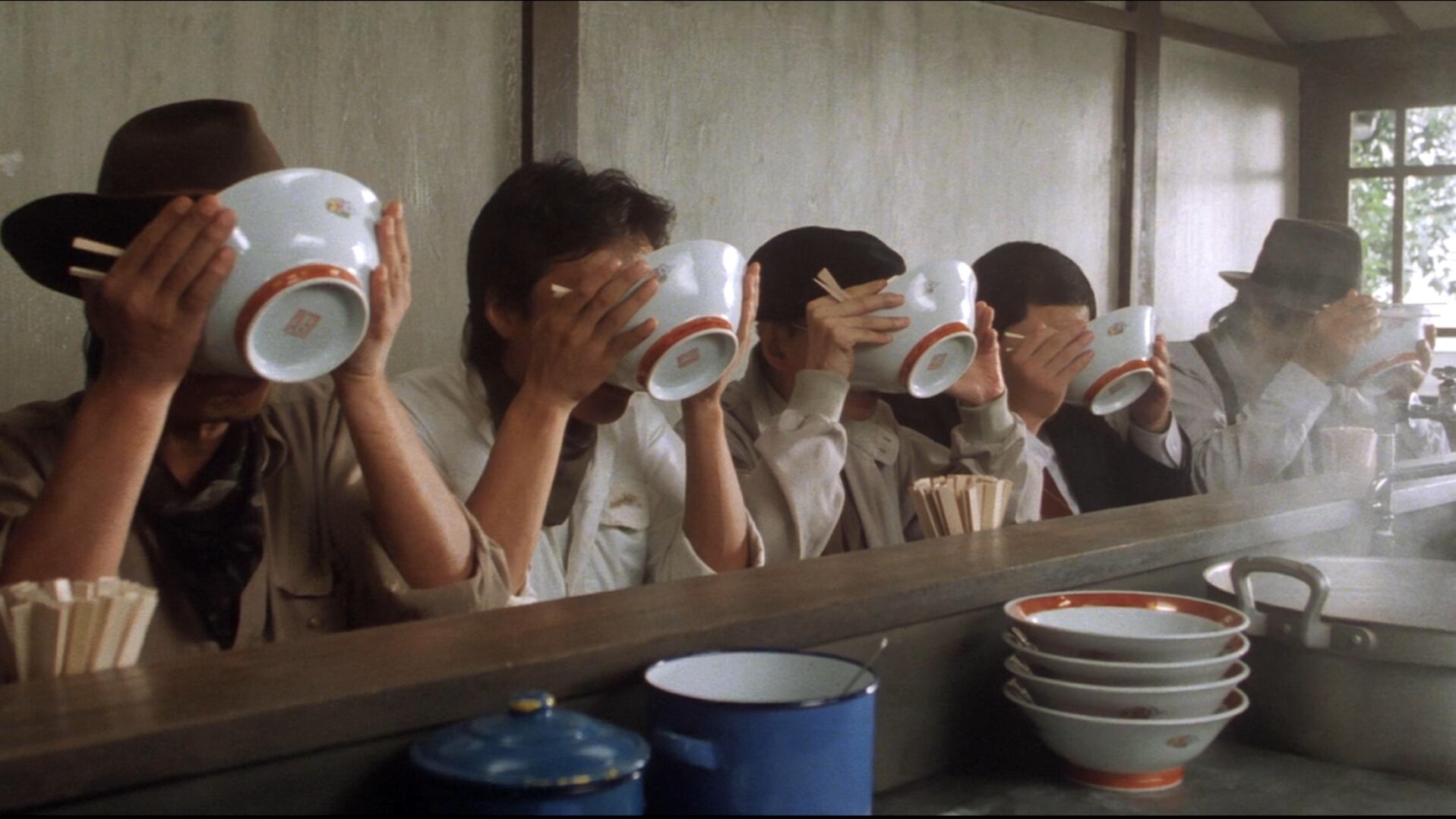Portland has plenty of ramen. Whether it's from new kid on the block Afuri, reigning king of smoked fat Marukin, suburban outpost of melty pork Ryoma or, hell, any one of another half-dozen spots in the metro area.
There are enough top-notch noodle houses across the city to put Portland neck and neck with Los Angeles—the country's traditional ramen powerhouse—in the race for the title of "best ramen city in the country," all while a new location of a top Japanese ramen-ya opens seemingly every few months.
This makes Jûzô Itami's 1985 "ramen Western" Tampopo—playing this weekend at NW Film Center's Whitsell Auditorium—a particularly timely flick for Portland moviegoers and noodle slurpers alike, not only because it features enough steaming bowls of broth bejeweled with fat to make you sprint to the nearest ramen bar, but because the film speaks to the state of modern Portland culture like few you'll see.
Now what the hell is a ramen Western?
Although Roger Ebert described the film as "one of those utterly original movies that seems to exist in no known category," Tampopo is, mostly, a play on the spaghetti Westerns of Sergio Leone—a comedy with the trappings of a Western translated to a food- and fashion-obsessed mid-'80s Japan. Outside an unnamed city, truck driver and ramen connoisseur Gorô (Tsutomu Yamazaki) and his apprentice Gun (Ken Watanabe) stop for a bowl of noodles at a dumpy ramen bar. After Gorô gets into a fight with oafish contractor Pisuken (Rikiya Yasuoka) and his goons, he comes to the next day at the house of the shop's proprietor, Tampopo (Nobuko Miyamoto), a young widow who desperately wants to improve her ramen. When Tampopo asks Gorô to become her teacher, they embark on a quest to make her noodle house exemplary with the help of a gang of do-gooders and some recipe-stealing subterfuge.
RELATED: WW Restaurant Guide to Noodle Houses.
Short vignettes of culinary eroticism turn Tampopo into much more than an oddball comedy. An unnamed gangster in a cream three-piece suit (Kôji Yakusho) and his lover turn honey, egg yolk and langoustine into sex toys. An old woman with a penchant for squeezing fruit and cheese between her fingers plays hide and seek with a shopkeep. A table full of Japanese teenagers loudly slurp pasta in a French restaurant, much to the chagrin of their etiquette instructor.
If this all sounds impossibly adorable, that's because it is: Tampopo is one of the most charming films you'll ever watch; think of your favorite Audrey Tautou movie (Amelie, Priceless) with the whimsy ratcheted way up. Itami immediately abandons all pretense of seriousness with a fourth-wall-breaking introduction, but doesn't let Tampopo veer into non sequitur hell or heavy-handed slapstick. Miyamoto is incredibly charming as the title character, playing the straight woman to the film's unapologetically goofy plot, while the supporting cast led by Yamazaki turn Western outlaw tropes on their head so brilliantly you don't realize you're watching the equivalent of a gun battle with a bowl of soup until you're laughing your ass off.
But Tampopo's relationship with food goes deeper than the pursuit of the perfect bowl of ramen. Unlike a film like Jiro Dreams of Sushi, David Gelb's snapshot of Michelin-starred Jiro Ono's pursuit of pure aesthetic perfection (and his thematically similar follow-up series Chef's Table on Netflix), Tampopo is about the quotidian pleasure you get from a really good bowl of soup, or really good sex, or from making a funny sound when you slurp your noodles. It's food culture not for some rich, globetrotting weirdo, but for those who want a good-ass meal on a Thursday.
Earlier this year, my brother from Nashville remarked that between the incredible food, nation's best beer, legal marijuana and general laissez faire attitude toward pretty much everything, Portland appeared to be some kind of hedonistic wonderland. Setting aside my predilection for face-stuffing—we'd just finished our second ice-cream sundae—Portland's civic culture has in large part come to be defined by the pursuit of pleasure. We're a city obsessed with food and beer, apparel is one of our largest industries, and most weekends the city empties for the vast playground of mountains, oceans, rivers and forests that surround it.
RELATED: WW Restaurant Guide, 2016.
Despite the fact it was filmed 30 years ago, Tampopo is a movie that captures the spirit of Portland food today, that of a city that seemingly finds a new way of making incredible fried chicken every year and where you need two hands to count the number of craft ice-cream shops. It's a movie that speaks to a city that pursues hedonistic perfection—foie gras profiteroles, anyone?—but isn't going to sleep on chicken and rice from a cart. It's a movie about ramen and sex for a city full of ramen and strippers.
SEE IT: Tampopo screens at NW Film Center's Whitsell Auditorium. 7 pm Friday, 4:30 and 7 pm Saturday, Nov. 25-26.

